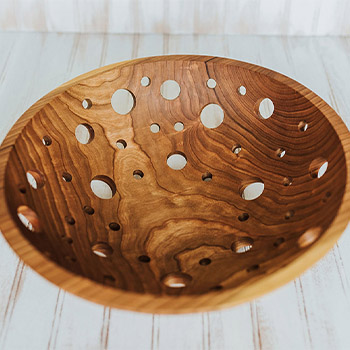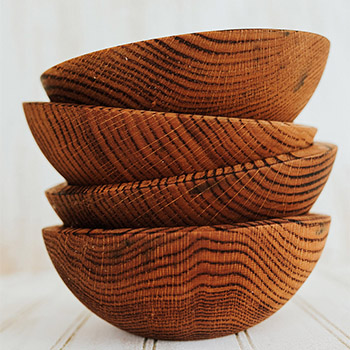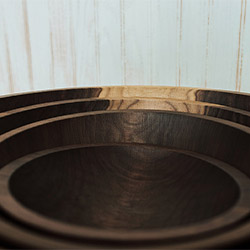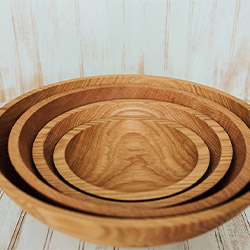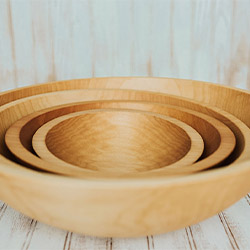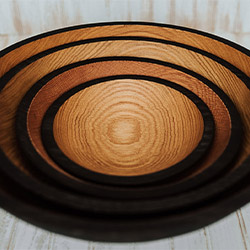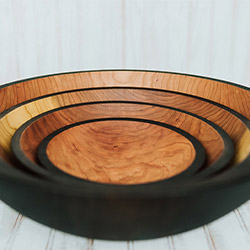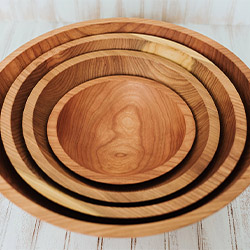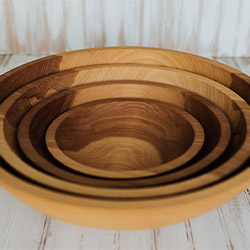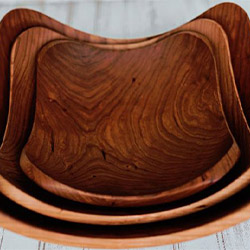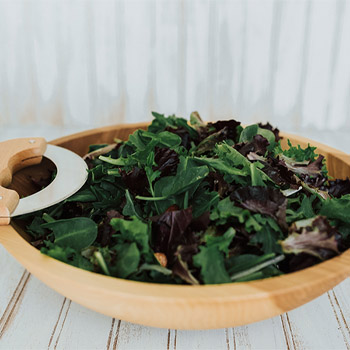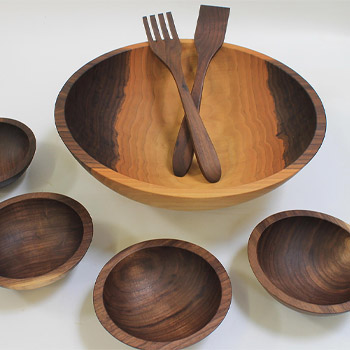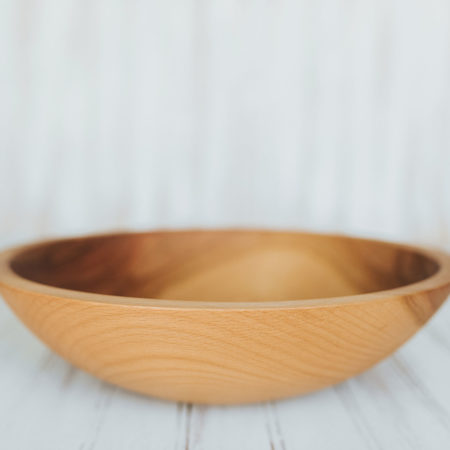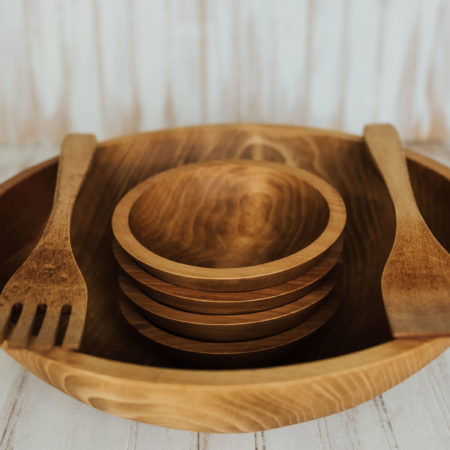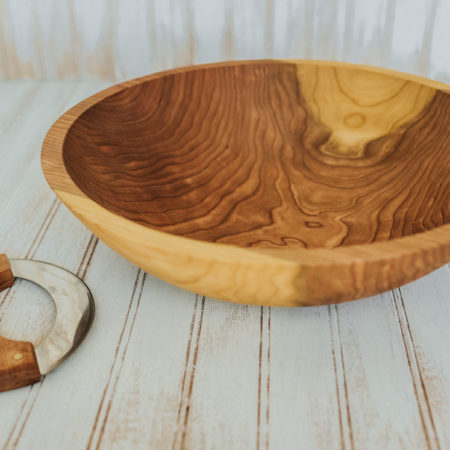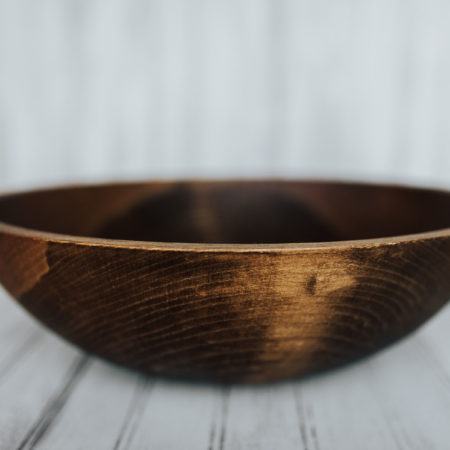Do you love using your favorite wooden spoon when cooking? It’s frustrating when you notice cracks starting to form on it, compromising its functionality and aesthetics.
But fear not; there are simple care tips you can follow to prevent cracks in your wooden utensils. By understanding the characteristics of wood and implementing proper cleaning techniques, drying and storing methods, and periodic maintenance, you can ensure the longevity of your beloved utensils.
So, let’s explore these care tips together and discover how to keep your wooden utensils crack-free and in excellent condition for years to come.
Key Takeaways
- Proper care and understanding of wood characteristics are essential to prevent cracks in wooden utensils.
- Hand wash wooden utensils with warm, soapy water, and avoid soaking or using the dishwasher.
- Thoroughly dry and store utensils in a cool, dry place away from heat sources to prevent drying out and warping.
- Regularly oil wooden utensils to keep them hydrated and prevent drying out and cracking.
Importance of Proper Care
Proper care is essential for maintaining the longevity and functionality of your wooden utensils. When you invest in high-quality wooden utensils, you want to ensure they last for a long time. By taking care of them properly, you can enjoy their beauty and usefulness for years to come.
To start, always hand wash your wooden utensils with warm, soapy water. Avoid soaking them for long periods or putting them in the dishwasher, as this can cause the wood to warp or crack. After washing, towel dry them thoroughly and let them air dry completely before storing them.
Another important aspect of caring for your wooden utensils is oiling them regularly. This helps to prevent the wood from drying out and cracking. Use food-grade mineral oil or beeswax to coat the utensils, applying a thin, even layer with a clean cloth. Let the oil soak in for a few hours or overnight, then wipe off any excess before using the utensils again.
Furthermore, it’s crucial to avoid exposing your wooden utensils to extreme heat or direct sunlight. High temperatures can cause the wood to expand and contract, leading to cracks or warping. Store them in a cool, dry place away from the stove or any heat sources.
Understanding Wood Characteristics
To ensure the proper care and maintenance of your wooden utensils, it’s important to have a clear understanding of their unique characteristics. Wood is a natural material that can be affected by various factors such as temperature, humidity, and exposure to water. By understanding these characteristics, you can take the necessary steps to prevent cracks and ensure the longevity of your beloved utensils.
One important characteristic of wood is its tendency to expand and contract with changes in humidity. Wood absorbs moisture from its surroundings, causing it to swell, and releases moisture when the environment is dry, leading to shrinkage. This natural movement can result in cracks or warping if not properly managed. To prevent this, it’s essential to keep your wooden utensils in a controlled environment with stable humidity levels. Avoid exposing them to extreme temperature changes or placing them near heat sources like stovetops or ovens.
Another characteristic to consider is the porosity of wood. Wood can absorb liquids, which not only lead to swelling and warping but also create an environment for bacteria to thrive. To prevent this, it’s crucial to avoid soaking your wooden utensils in water for extended periods. Instead, hand wash them with mild soap and warm water and promptly dry them with a towel. Applying food-safe mineral oil or beeswax regularly can also help maintain their moisture levels and protect them from drying out.
Understanding the grain direction of wood is also important. Most wooden utensils are crafted with the grain running longitudinally, providing strength and durability. However, it’s essential to avoid putting excessive pressure on the utensils, especially when scraping or cutting, as it can cause the wood to split along the grain.
Cleaning Techniques for Wooden Utensils
Keeping your wooden utensils clean is essential for maintaining their quality and ensuring safe food preparation. Wooden utensils have natural antibacterial properties, but they can still harbor bacteria and food residue if not cleaned properly. Here are some cleaning techniques to help you keep your wooden utensils in top shape:
| Technique |
Materials Needed |
Steps |
| Hand Washing |
Warm water, mild dish soap, a sponge, or a cloth |
1. Rinse the wooden utensils under warm water to remove any loose food particles. 2. Apply a small amount of mild dish soap to a sponge or cloth. 3. Gently scrub the utensils, paying attention to any stubborn residue. 4. Rinse thoroughly with warm water. 5. Pat dry with a clean towel and allow them to air dry completely before storing. |
| Oil Treatment |
Food-grade mineral oil or coconut oil, clean cloth |
1. Apply a small amount of food-grade mineral oil or coconut oil to a clean cloth. 2. Rub the oil into the wooden utensils, making sure to cover all surfaces. 3. Let the oil sit for about 15 minutes. 4. Wipe off any excess oil with a clean cloth. 5. Allow the utensils to air dry completely before using or storing. |
| Vinegar Solution |
White vinegar, water, spray bottle |
1. Mix equal parts white vinegar and water in a spray bottle. 2. Spray the solution onto the wooden utensils. 3. Let it sit for a few minutes. 4. Scrub the utensils with a sponge or cloth. 5. Rinse thoroughly with warm water and pat dry. |
Remember to avoid soaking wooden utensils in water or placing them in the dishwasher, as this can cause warping, cracking, or splitting. Additionally, do not use harsh abrasives or bleach on wooden utensils, as this can damage the wood. By following these cleaning techniques, you can ensure that your wooden utensils remain clean, safe, and in excellent condition for years to come.
Drying and Storing Wooden Utensils
To ensure the longevity of your wooden utensils and maintain their cleanliness, it’s important to properly dry and store them. After washing your wooden utensils, it’s crucial to dry them thoroughly before storing them. Leaving them wet can lead to mold growth and cause the wood to warp or crack. To dry your utensils, simply wipe them with a clean towel or allow them to air dry in a well-ventilated area. Avoid placing them in direct sunlight or near a heat source, as this can cause the wood to dry out too quickly and potentially crack.
When it comes to storing your wooden utensils, it’s best to keep them in a cool and dry place. Avoid storing them in a damp or humid environment, as this can promote the growth of mold and mildew. Instead, find a spot in your kitchen where they can be stored upright or in a utensil holder. This will help to prevent them from coming into contact with water or other liquids that can damage the wood.
Another important aspect of proper storage is to avoid overcrowding. Make sure there’s enough space between each utensil to allow for proper air circulation. This will help to prevent moisture from being trapped and reduce the risk of mold growth. Additionally, storing your wooden utensils away from other sharp objects can help to prevent scratches and damage.
Seasoning and Oiling Wooden Utensils
For proper maintenance and care of your wooden utensils, consider seasoning and oiling them regularly. Seasoning and oiling are essential steps in keeping your wooden utensils in great condition and preventing cracks.
Seasoning involves applying a thin layer of food-safe oil or wax to the surface of the utensils. This helps to seal the wood, making it less likely to absorb moisture and reducing the risk of cracks.
To season your wooden utensils, start by cleaning them thoroughly with warm, soapy water and letting them dry completely. Then, apply a small amount of food-safe oil, such as mineral oil or coconut oil, to a clean cloth or paper towel. Rub the oil onto the surface of the utensils, making sure to cover all areas. Let the oil sit for a few minutes to allow it to penetrate the wood. Wipe off any excess oil with a clean cloth. Repeat this process every few months or as needed to maintain the protective layer.
Oiling your wooden utensils is another important step in their care. Regular oiling helps to keep the wood hydrated and prevents it from drying out and cracking.
To oil your utensils, simply apply a thin layer of food-safe oil, such as olive oil or walnut oil, to the surface. Rub the oil in with a clean cloth and let it soak in for a few hours or overnight. Wipe off any excess oil before using the utensils.
Avoiding Extreme Temperatures
To keep your wooden utensils in the best condition, it’s important to be mindful of extreme temperatures.
Wooden utensils are sensitive to both high heat and freezing temperatures, as they can cause the wood to warp or crack.
To avoid damage, make sure to store your utensils in a cool, dry place away from direct heat sources.
Never leave them outside in freezing temperatures.
Temperature Sensitivity
Take caution when exposing your wooden utensils to extreme temperatures, as it can cause damage and compromise their longevity.
Wooden utensils are sensitive to temperature changes, so it’s important to handle them with care.
Here are some tips to help you avoid extreme temperatures and keep your wooden utensils in good condition:
- Avoid using wooden utensils in high-temperature environments, such as on a hot stove or grill.
- Don’t soak wooden utensils in hot water for long periods of time.
- Never put wooden utensils in the dishwasher or microwave.
- Store your wooden utensils in a cool and dry place, away from direct sunlight or heat sources.
- Allow your wooden utensils to cool down before cleaning or storing them.
Proper Storage Methods
After taking precautions to avoid exposing your wooden utensils to extreme temperatures, it is important to properly store them to ensure their longevity. Extreme temperatures can cause the wood to expand or contract, leading to cracks or warping. To prevent this, follow these storage tips:
| DO |
DON’T |
| Store wooden utensils in a dry place |
Store them in direct sunlight |
| Keep them away from heat sources |
Place them near the stove or oven |
| Use a utensil holder or a drawer |
Leave them exposed to the elements |
| Store them upright to prevent bending |
Store them in a cramped or tight space |
| Clean and dry them before storage |
Store them while still damp or wet |
Using Wooden Utensils With Care
Using wooden utensils requires proper care to ensure their longevity and optimal performance. Here are some essential tips to keep in mind:
- Clean them gently: After each use, wash your wooden utensils by hand with warm water and mild soap. Avoid using harsh cleaning agents or abrasive sponges that can damage the wood.
- Dry them thoroughly: To prevent moisture from seeping into the wood and causing cracks or warping, make sure to dry your wooden utensils completely before storing them. Use a clean towel or air dry them upright.
- Oil them regularly: Applying food-grade mineral oil to your wooden utensils helps to maintain their moisture content and prevent them from drying out. This simple step also enhances their natural beauty and protects them from stains and odors.
- Avoid extreme temperatures: Wooden utensils are sensitive to extreme temperatures, so it’s important to avoid exposing them to direct heat, such as placing them near stovetops or inside ovens. Additionally, refrain from soaking them in hot water for extended periods.
- Store them properly: Store your wooden utensils in a dry and well-ventilated area. Avoid overcrowding them in a drawer or leaving them in a damp environment, as this can lead to mold growth or warping.
Periodic Maintenance for Longevity
To ensure the longevity of your wooden utensils, it’s important to engage in periodic maintenance. This includes adopting proper cleaning and drying techniques to prevent moisture damage, using appropriate storage methods to prevent warping or cracking, and regularly oiling and conditioning the wood to keep it nourished and protected.
Cleaning and Drying Techniques
Regularly cleaning and thoroughly drying your wooden utensils is essential for maintaining their longevity. To ensure that your utensils remain in top condition, follow these simple cleaning and drying techniques:
- Gently hand wash: Use a soft sponge or cloth and mild dish soap to clean your wooden utensils. Avoid using abrasive cleaners that can damage the wood.
- Avoid soaking: While it’s important to clean your utensils, soaking them for extended periods can cause the wood to swell and crack. Instead, wash them quickly and dry them promptly.
- Air drying: After washing, let your wooden utensils air dry completely by placing them in a well-ventilated area. Avoid using a dish rack or towel, as moisture can accumulate and cause damage.
- Oil regularly: Periodically apply food-grade mineral oil to your wooden utensils to keep them moisturized and prevent drying and cracking.
- Store properly: Store your utensils in a dry, cool place, away from direct sunlight and heat sources. This will help maintain their shape and prevent warping.
Proper Storage Methods
For optimal longevity, it is important to store your wooden utensils properly. By following these storage methods, you can prevent cracks and extend the lifespan of your beloved utensils. Here are some tips to help you store them correctly:
| Storage Method |
Description |
Benefits |
| Keep them upright |
Store your wooden utensils in an upright position to prevent moisture buildup and warping. |
Maintains the shape and integrity of the utensils. |
| Avoid direct sunlight |
Keep your utensils away from direct sunlight to prevent discoloration and drying out. |
Preserves the natural color and moisture content of the wood. |
| Use a utensil holder |
Invest in a utensil holder to keep your wooden utensils organized and protected. |
Avoids contact with other utensils, reducing the risk of scratches and damage. |
| Regularly oil them |
Apply food-grade mineral oil to your wooden utensils every few months to keep them moisturized and prevent cracking. |
Nourishes the wood and enhances its durability. |
| Store in a cool, dry place |
Find a cool and dry spot in your kitchen to store your wooden utensils away from excessive heat and humidity. |
Minimizes the risk of mold growth and warping. |
Regular Oiling and Conditioning
As you continue caring for your wooden utensils, an essential step to ensure their longevity is regular oiling and conditioning. By following these simple steps, you can keep your wooden utensils in top-notch condition and enjoy their beauty and functionality for years to come:
- Nourish and protect: Regularly oiling your wooden utensils helps to nourish the wood, keeping it hydrated and preventing it from drying out and cracking.
- Enhance natural beauty: Conditioning your wooden utensils with food-safe oils like mineral oil or beeswax not only protects them but also enhances their natural beauty, giving them a rich and lustrous appearance.
- Improve durability: Oiling and conditioning the wood helps to improve its durability, making your utensils more resistant to the wear and tear of everyday use.
- Maintain hygiene: By regularly oiling and conditioning your wooden utensils, you create a protective barrier that helps to repel bacteria, ensuring that your utensils remain hygienic.
- Cultivate a sense of belonging: By taking the time to oil and condition your wooden utensils, you’re investing in their care and maintenance, creating a sense of belonging and connection to these everyday tools that serve you in the kitchen.
Review
Taking proper care of wooden utensils is essential to prevent cracks and ensure their longevity.
By understanding the characteristics of wood and following cleaning, drying, and storing techniques, as well as seasoning and oiling regularly, you can maintain the quality of your utensils.
Avoiding extreme temperatures and using them with care will further contribute to their durability.
Remember, periodic maintenance is key to enjoying your wooden utensils for years to come.

